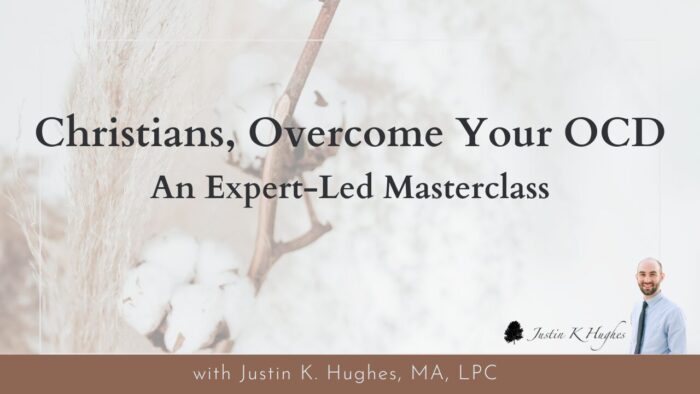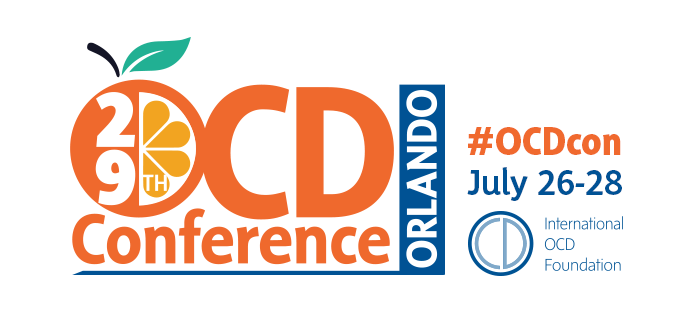
As with many of my clients, Anne* was befuddled as to why she couldn’t stop obsessing. She was a high performer at work and revered in relationships. However, she couldn’t get it out of her thoughts that she was failing, that imminent doom was about to befall her, and that it would all come crashing down.
“I am the most positive person I know! My morning routine consists of starting the day with breathing, meditation, prayer, and then reminding myself throughout the day what I’m grateful for. I exercise vigorously 6 days a week, eat healthy, have strong friendships and a strong commitment to my faith. When I face the anxiety of failure or rejection with work or people, I keep telling myself the same thing: ‘you’re strong, you’ve got this, and you’ll be fine.’ Why am I still terrified of what other people think of me, afraid to open my emails in the morning for fear of being notified of something bad, and always on edge when people ask if they can talk to me?”
Something’s Odd Here- I Spy…
The fact that Anne had such fear based thoughts appears unusual and odd on the surface. If you know Anne or someone like her, you would likely be confused, too, as to why she suffers with so much anxiety when she is so consistently positive. But there’s a little clue in the narrative, little clues that experienced clinicians are trained to spot through assessment and questions.
Did you spot anything that caught your attention? Look again at the first paragraph if you didn’t.
No worries if you didn’t see anything unusual- I didn’t either until I had the experience and training to catch it: her repetitive statement of ‘you’re strong, you’ve got this, and you’ll be fine’ was ritualistic (and thus, superficial). It attempted to be positive on the surface, but didn’t actually address the underlying fear (remember how she said fear of failure, imminent doom, and it would all come crashing down?). Her routines were rock solid– outstanding disciplines practiced daily and regularly throughout the day.
It reminds me of a reference in Alcoholics Anonymous (pp. 151-152), speaking of the person who is lying to themselves:
“Now and then a serious drinker, being dry at the moment says, “I don’t miss it at all. Feel better. Work better. Having a better time.” As ex-problem drinkers, we smile…. We know our friend is like a boy whistling in the dark to keep up his spirits. He fools himself.”
Your Brain Can Spot A Lie To Itself
Don’t lie to your brain. It will catch you. You can’t trick yourself to magically make fear go away. You must face fear head on. If you truly haven’t faced your concerns- body, mind, and spirit, but you forcefully tell yourself something nice and positive that you haven’t yet experienced, prepare for your brain to fire back anxiety, distress, fear, disgust, or the like even when you’re “being positive.”
One side note to be clear- I’m not calling out per se the use of positive visualization or necessarily other practices that envision the occurrence of positive things that aren’t (at least yet) the case. However, I do ask clients who want to do these practices to look together and assess if they are practicing these out of avoidance of something they need to face or whether they are valued, intentional and purposeful behaviors.
Forcing Thoughts To Not Be Present Doesn’t Work
Forcing thoughts doesn’t work. Making yourself feel positive when you’re not positive isn’t possible. Positivity is either a result of other things (e.g., the result of practice) or it is a practice that is done in the moment- even when not feeling positive (e.g., smiling when you feel negative). So what actually happens for clients who just keep compulsively telling themselves positive things while not pausing to address their core fears, cognitive distortions, and disordered behavioral patterns is that their distress is typically reinforced. In other words, their response is a false safety behavior (see my article, “Playing It Safe Can Harm You”) which serves to make distress worse.
Practice Positivity, But….Only If It’s In Line With Reality
You’ll notice the title is “Stop Trying To Have Positive Thoughts.” This is different from positive thinking. Positive thinking is generated in many ways, such as:
- Overall perspective
- Result of gratitude
- Experienced through Cognitive Restructuring (a CBT tool to help replace negative thoughts and be more realistic)
- Changing attitude through intentional shift in perspective
Positive thinking is powerful and an important part of our health and a counter to our brain’s negativity bias. Yes, as a therapist I very much hope you will think positively. But that’s very, very different from trying to force positive thoughts. Anne learned that she hadn’t yet “done business” with her core fears. She grew a lot by tracking them, calling them out, looking at them realistically, and consistently/persistently changing her day-to-day ruminations, avoidance, and relief seeking behaviors.








Leave a Reply